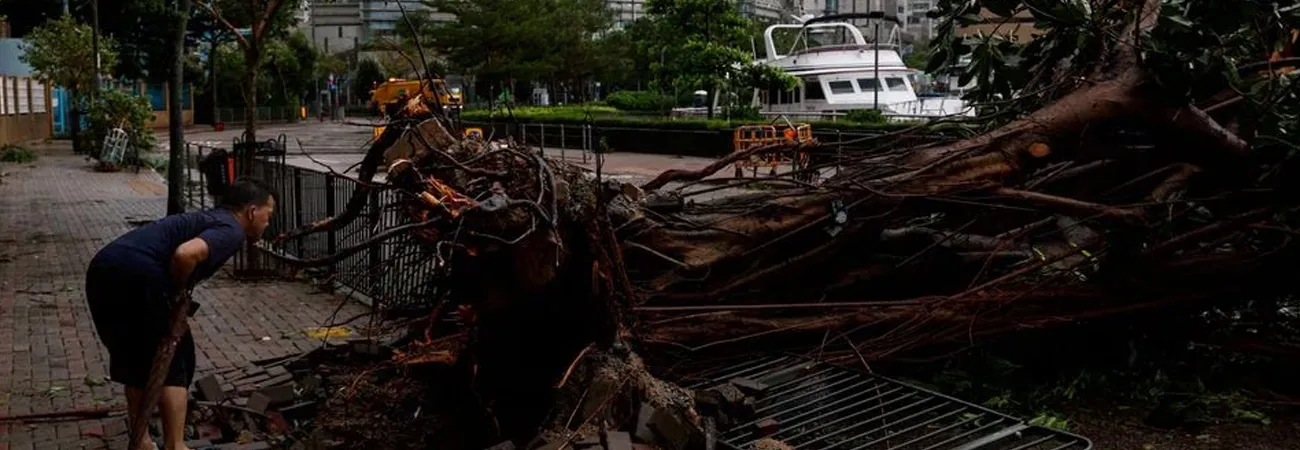i NEWS INTERNATIONAL
Taiwan woke up on Monday to toppled trees, floods, and persistent rainfall after Typhoon Haikui made landfall on the island and swept overnight across its central mountain ranges. Haikui initially appeared to leave the island but made a second landfall early Monday in southwestern Kaohsiung, before it was downgraded to a severe tropical storm. There were no reports of deaths, but destruction was seen in coastal Taitung, a mountainous county in lesser-populated eastern Taiwan where the storm directly hit the day before. "I've lived here for so long and I have never seen such wind gusts," said Chen Hai-feng, 55, a village chief in Taitung's Donghe township, where he was with an early-morning work crew removing trees from a road. Although Haikui is considered to be less severe than previous storms, Chen said it felt more powerful.
Further north from Donghe, workers ferried massive blocks to a coastal highway that had partially collapsed from the force of waves slamming into it, hoping that the concrete structures would absorb the impact.Haikui – the first typhoon landfall in Taiwan in four years – forced the evacuation of more than 7,000 people across the island, particularly from landslide-prone mountainous regions. Hundreds of flights were cancelled and businesses were closed. More than 217,000 households temporarily lost power through the day. By Monday morning, 58,000 homes still had no electricity, while schools and businesses remained closed in 14 cities as torrential rain bucketed down.
A forecaster with Taiwan's Central Weather Bureau said Haikui initially appeared to move through the island and out to sea but made a second landfall in Kaohsiung at around 4 am (2000 GMT Sunday). During the night "the centre of the typhoon was almost circling" Kaohsiung, but as it moved along the coastline "the structure of the typhoon is damaged by the terrain and gradually weakens", she said. Local news outlets reported that the roads were flooded in Kaohsiung, and uprooted trees were strewn across streets.
Nearly 80 people were injured during the typhoon, according to authorities, though they were minor – mostly due to fallen trees and car accidents. Haikui is now expected to bring strong winds and rain to the south and northeast, and to Taiwan's outlying islands of Kinmen and Penghu. aiwan Semiconductor Manufacturing (TSMC), the world's largest contract chipmaker, said its plants in Taiwan were operating normally and had not been affected by the storm.
However, Taiwan airlines cancelled 189 domestic flights on Monday, with only a handful scheduled to fly, while ferry services to surrounding islands were also suspended. There was less disruption to international flights, with only 23 cancelled, the Civil Aeronautics Administration said. Counties and cities across southern, eastern and central Taiwan cancelled classes and declared a day off for workers on Monday. In capital city Taipei there were sporadic gusty rain showers. Haikui is much weaker than Typhoon Saola, which hit Hong Kong and the southern Chinese province of Guangdong on Saturday.
Credit: Independent News Pakistan (INP)









